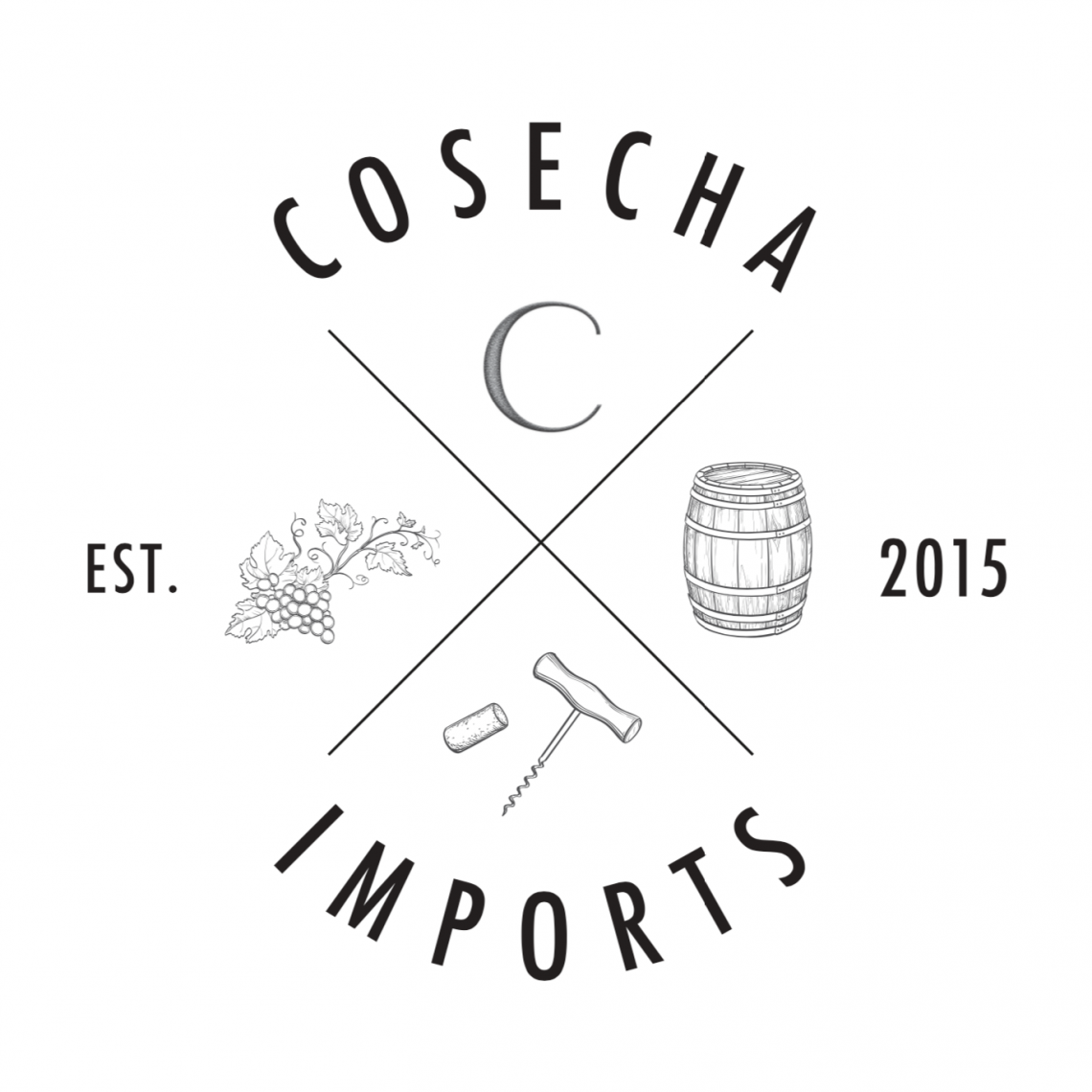The Wolf Post, supported by a Cultural Association, offers a professional service with free access, without subscription.
For this reason, a donation would also be a sign of appreciation for our work.
Jason Axmith founded Cosecha Imports in 2015. The company exports Spanish wines to the Canadian market.
Cosecha Imports differs from the competition by focusing on organic, low-intervention wines.
Jason and his team travel throughout the year to live together with the winemakers’ clients, personally verifying the quality of the products and the work from the vineyard to the cellar.
Ethical wines, obtained with minimal interventions and a low consumption of sulphites.
In this interview, Jason shares his experience and professionalism, as well as his thoughts on Spanish wines in the international market.
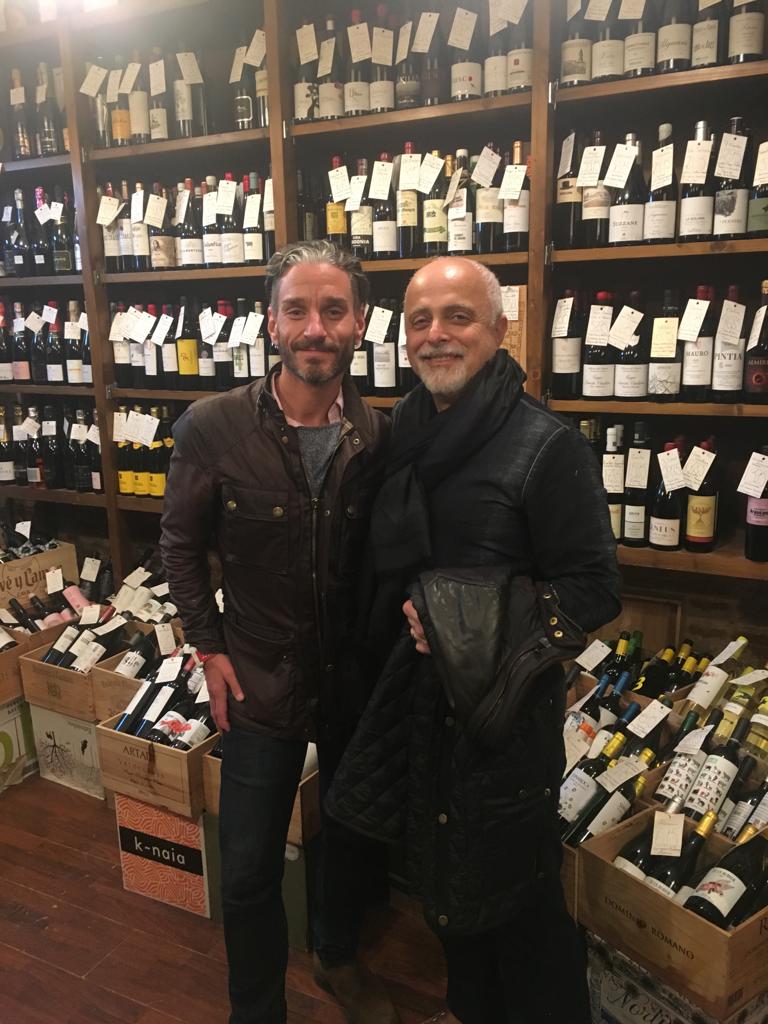
©Cosecha Imports-Jason Axmith and Abraham Baboujian
When did you decide to create a wine import company and why did you choose Spain?
After moving to Spain, in 2006, to open an office for an international business consulting group, I began meeting sommeliers from Michelin starred restaurants. They opened my eyes and taste buds to remarkable wines and introduced me to the winemakers that made them. To my surprise, very few of these winemakers had representation in Canada at the time.
The mission of Cosecha Imports (cosecha is the Spanish word for “harvest”) is to champion the introduction of the best producers in Europe to the Canadian market. The same way Sid Epstein brought the Beatles to the USA and the British Invasion of Music to America, we want to do the same for Spanish wine in Canada.
Compared to your beginnings, how has the demand for Spanish wines evolved in Canada? Is there a greater knowledge on the part of your customers of Spanish wines or do they trust exclusively your experience?
We have seen tremendous market growth for Spanish wine since we started. Not only thanks to our efforts, but also because of the efforts of other leading importers, sommeliers and influencers from London to New York, to Tokyo and, of course, Toronto.
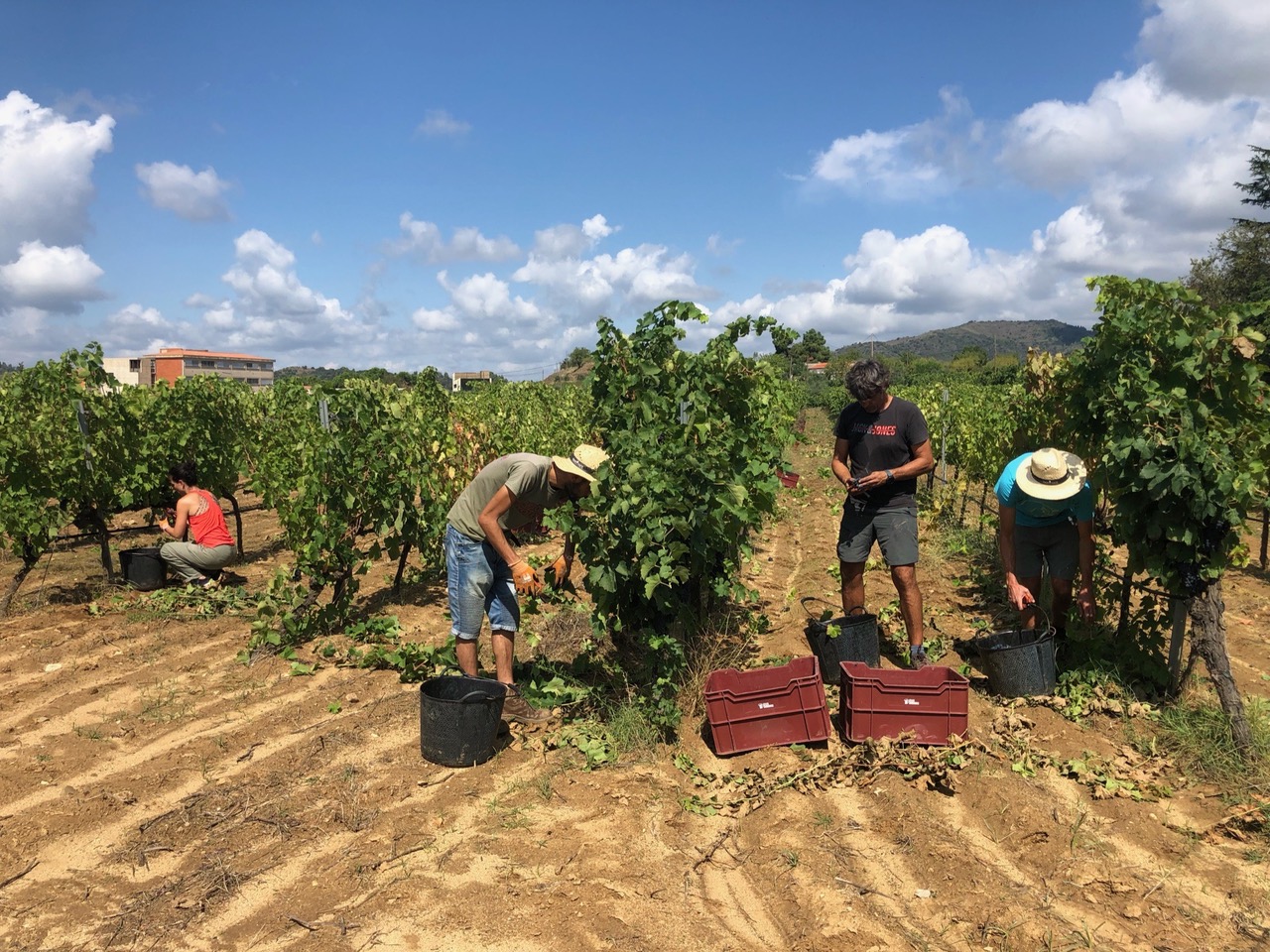
©Cosecha Imports
The wine world has become enraptured by what is called “New Spain” or “The Spanish Revolution in Wine”. Spain had lost its way in the 80s and 90s, favouring a heavier, more commercial style of winemaking with excessive use of oak and extraction. The producers we represent are considered part of the “New Spain” and focus on an artisanal style of winemaking. They focus on organic farming and minimal intervention in the cellar.
Now, with Spanish cuisine’s popularity on the rise there is an evolving appreciation in Spanish wine. Compared to France and Italy, Spain’s quality-for-price ratio is excellent. Our audience is curious and willing to try previously under-appreciated grape varieties like Mencia, Xarelo or Hondarrabi Zuri! Our clients trust us and trust our selections.
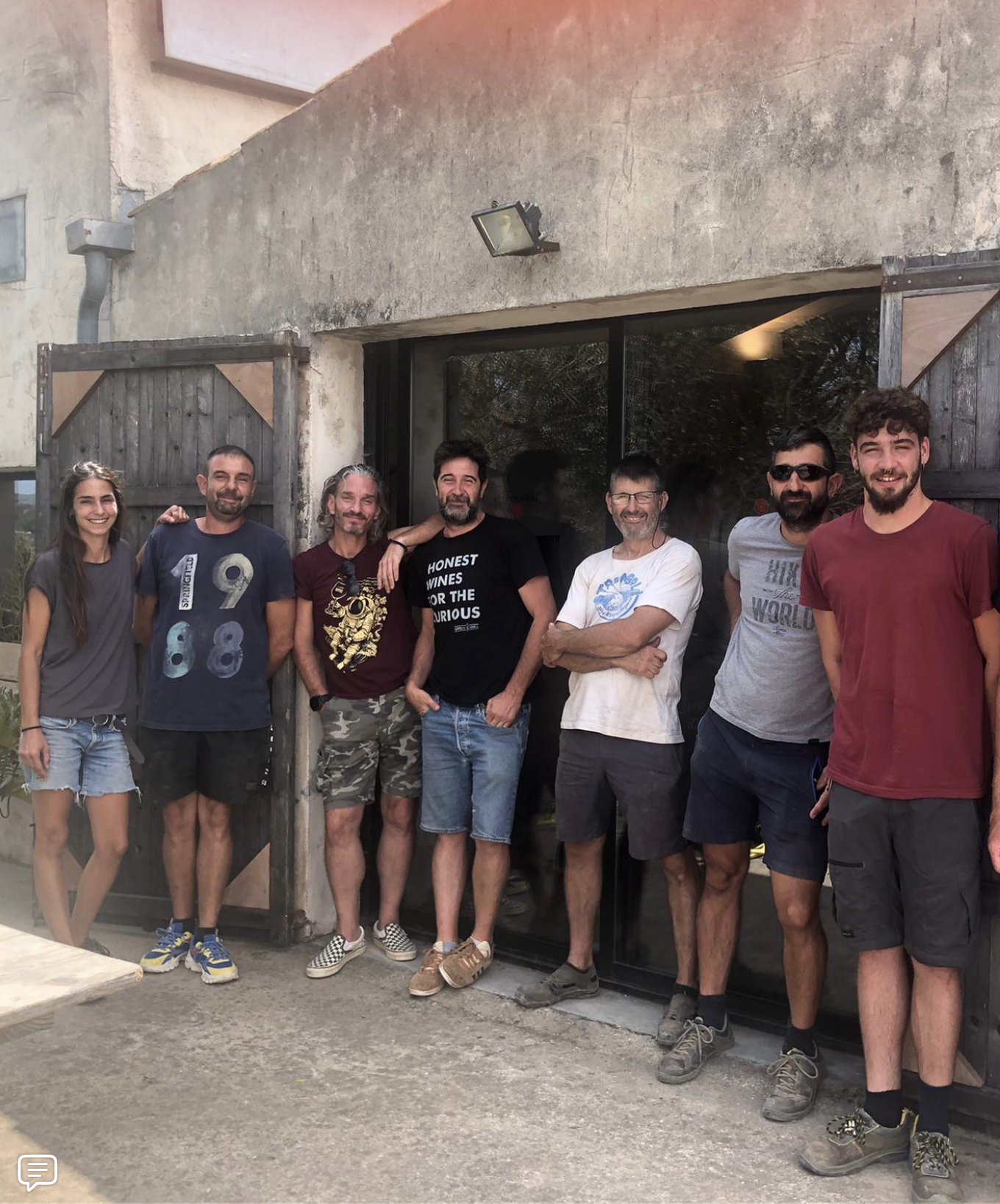
©Cosecha Imports
Are there wines more in demand than others, perhaps coming from specific Spanish regions, or does the good name of Spanish wines, regardless of the geographical area, win?
People want traceability in the wines they consume. They ask for organically farmed and low intervention in the wine making process. Once an audience learns that indigenous varieties are better adapted to climate change and are thriving, they ask for them.
New emerging regions like Galicia, Sierra de Gredos and the Canary Islands not once thought of for viticulture have become intensely in demand.
What factors influence the choice of the North American/Canadian consumer when buying Spanish wines?
Definitely the quality/price ratio, organic farming and low intervention are key drivers.
Our clients love the story behind the farmers, families and people that make the wine and the importers who bring them to market. Many look to us because they know we travel to wineries 50% of the year looking for the best and brightest in new producers.
It’s easy to read ratings and review points and select producers that way. It’s another to go out and meet these special people, visit their vineyards, gain their trust and recognize their talents before anyone else does. It takes a tremendous amount of work and dedication.
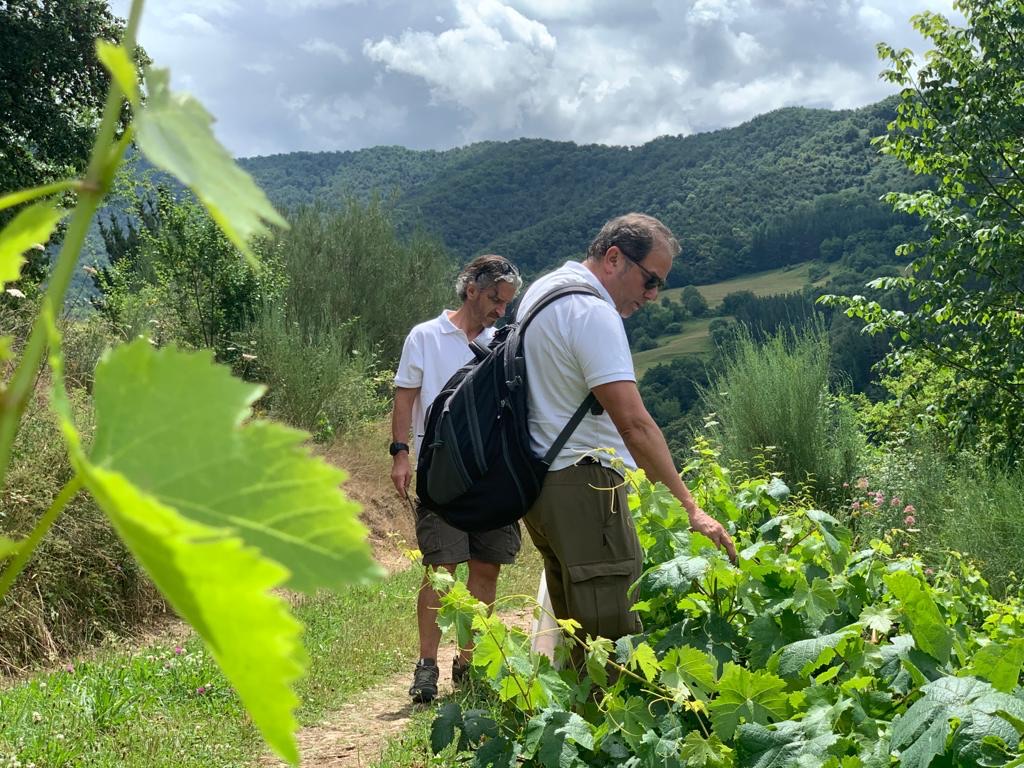
©Cosecha Imports
According to what qualitative and opportunity criteria does COSECHA IMPORTS select the companies to be positioned within the Canadian market?
We follow specific criteria when adding a new producer to the portfolio. All our producers farm organically and sustainably, hand-harvest their grapes, practice a philosophy of minimal intervention in their winemaking, use minimal sulphites or additives and trend towards indigenous varieties.
As we are also based in Europe, we always take the time to visit the producers, taste out of the barrel and experience their wineries and winemaking firsthand. We often participate in harvest and in the winemaking itself.
This makes for a longer, more expansive and at times exhaustive selection process but we believe there is a part of Cosecha Imports’ soul in each of the wines we represent. We build real-life, deep connections with our winemakers and their families, and we become the promoters of their wine and their story. Our audience sees the authenticity and passion in what we do, and our winemakers appreciate the effort.
Over the course of your career, did it happen to you to overestimated wines that did not have the expected response in Canada and, vice versa, underestimated labels that turned out to be successful?
Despite our expertise and recognition within the industry, I think we still hold the same always learning mindset. That way we never lose our edge. I think we were most surprised that even wines from star regions like Priorat took more time to develop a footprint in the Canadian market, whereas in the USA the Priorat is synonymous with a premium segment. Over time Canada and the world has come to realize that there is more to Spanish wine than just Rioja.
The lesson we learned is that you can’t rely on data from another market, even when that market is next door. You need to test the wines on home grounds. We hold a quarterly focus group of our sales team, sommeliers and key private clients where we propose new wines and projects.
This way, we have an advanced context to forecast how the wine may be perceived by the Canadian market at introduction. These days, we are seeing alot of requests for “low alcohol wines”, “Ancestrale Traditional Method Sparkling Wines” and “Natural Wines”.
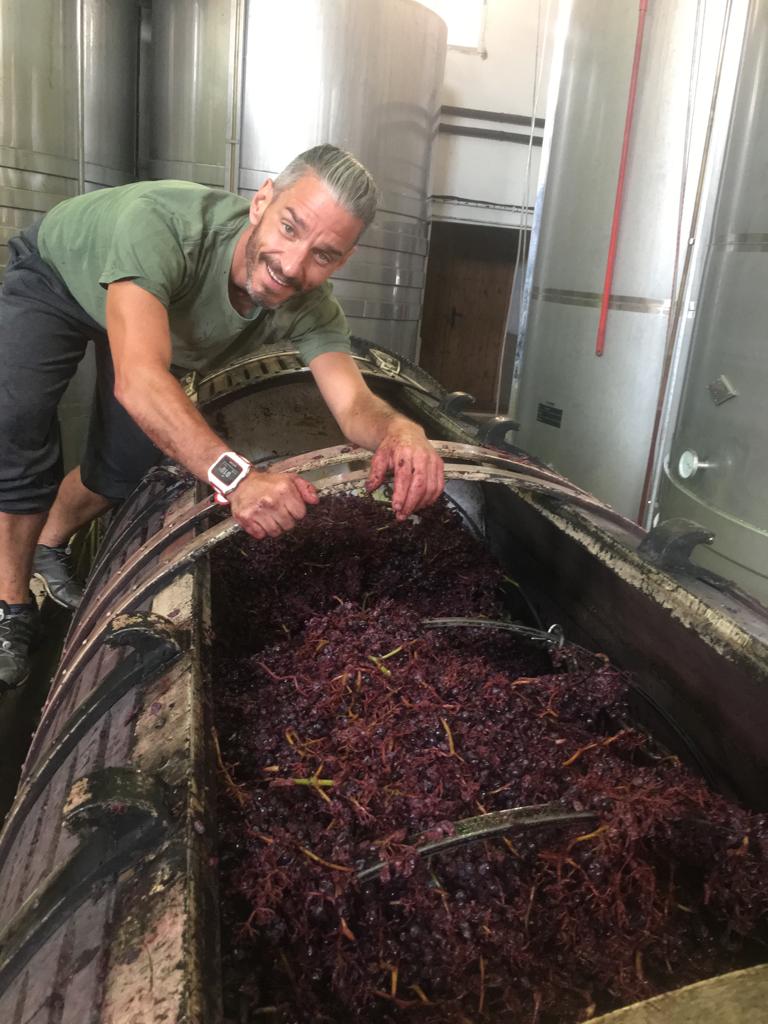
©Cosecha Imports-Jason participating in the winemaking process
What are COSECHA IMPORTS’s medium and long-term goals?
What makes Cosecha Imports so unique is that we are not only importers, but also harvesters and producers. We currently have 6 cuvées under the Cosecha Imports label and want to continue to grow that sector.
My business partner and confidant Abraham Baboujian and our growing team want to continue to focus on our unique and wonderful winemakers and change hearts and minds about what it means to enjoy wine.
We also want to continue working and growing with the producers we started with in 2016, 30 years from now!


